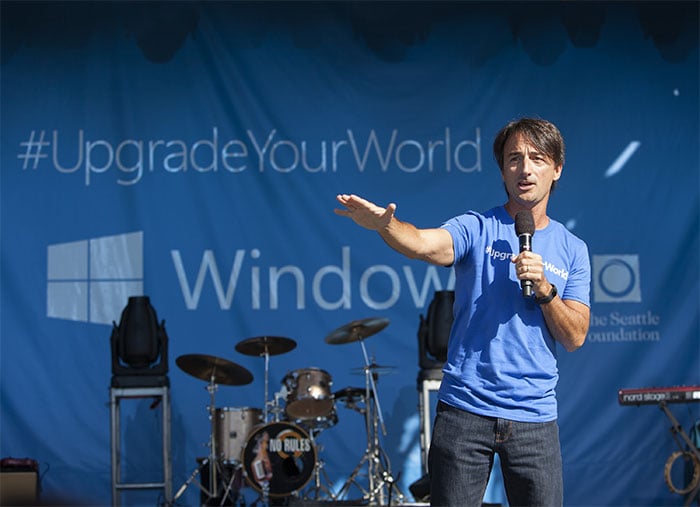Microsoft Teases Modern OS As Next-Gen Windows With Seamless Updates

Microsoft abandoned its monolithic approach to Windows with the release of Windows 10, and instead now doles out major feature updates twice annually, the most recent of which was the May 2019 Update. Might there still be something beyond Windows 10? That's a good question, and Microsoft hinted at a "modern operating system" with a key function—seamless updates.
The way things work now, Microsoft continues to push out security patches on the second Tuesday of every month. This is known as Patch Tuesday, and these roll outs typically consist of several security patches, sometimes a dozen or more. As needed, Microsoft will also push out emergency out-of-band patches, like when a major zero-day threat emerges. These are all in addition to the biannual upgrades to Windows 10.
At Computex, however, Microsoft talked about its vision for a "modern OS." The key feature of a modern OS would be that it's "secure by default."
"An OS that provides a set of enablers that deliver the foundational experiences customers expect from their devices, and includes a set of delighters that deliver innovative human-centric experiences. Enablers include seamless updates—with a modern OS updates are invisibly done in the background; the update experience is deterministic, reliable, and instant with no interruptions!," Microsoft explained.
Part of that would also entail separating the compute functions from the operating system, in order to protect the user from malicious attacks at all times. This would be one of various so-called "enablers," though it's not entirely about security.
Microsoft also talked about a modern OS always being connected with Wi-Fi and 5G that "just work" without any dead spots. A user's various devices would be connected to each other as well, each offering "sustained performance."
"A modern OS provides sustained performance, from the moment a user picks up their device—everything is ready to go—without having to worry about the next time the PC needs to be charged. These enablers will satisfy customer’s basic needs, but to truly differentiate we must also delight them. A modern OS does this by enabling cloud-connected experiences that use the compute power of the cloud to enhance users experiences on their devices," Microsoft said.
One thing that's interesting is there is no actual mention of Windows. That leaves the door open for a modern OS to be something different, though it doesn't sound like Microsoft is actually building a new OS, but is just kind of outlining what a utopian OS experience would be like.
Will any of this come to fruition? That remains to be seen, though Microsoft did say that it's investing to enable these sorts of modern OS experiences.

